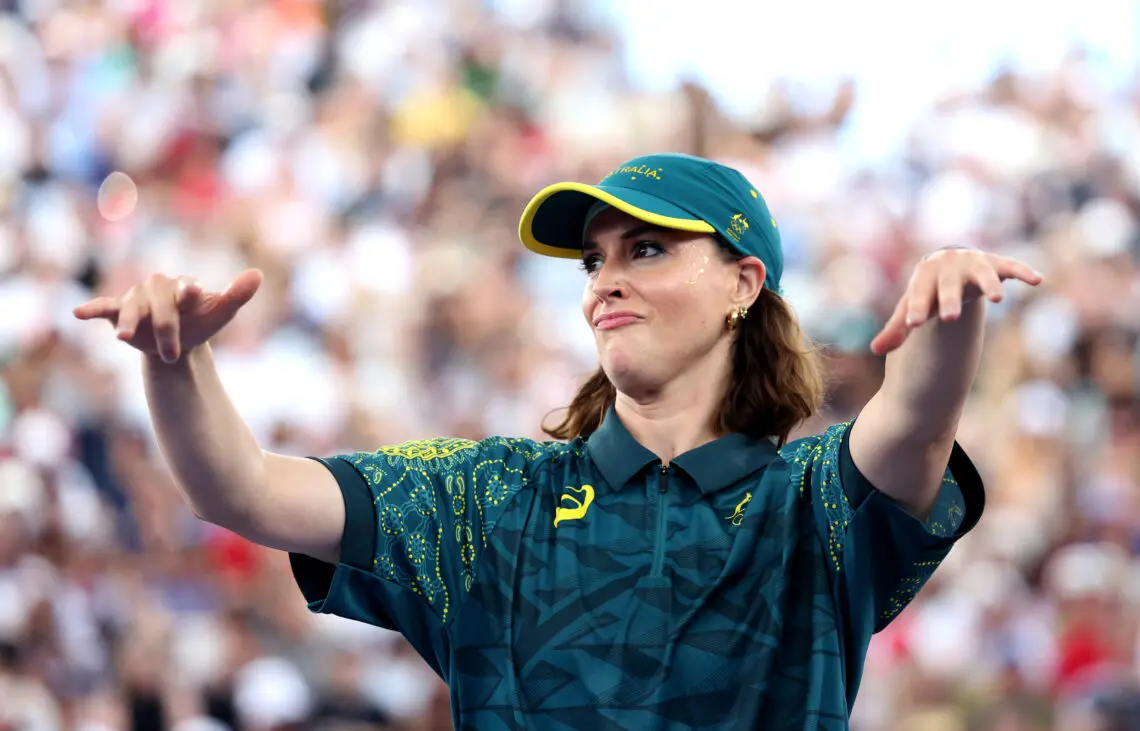Raygun steps back from competition: The fallout of Olympic scrutiny
From the heights of anticipation to the depths of critique
Australian breakdancer Rachael Gunn, famously known as Raygun, has announced her retirement from competitive breaking following the intense backlash she faced at the Paris Olympics. Gunn’s decision underscores the challenging dynamics athletes face in the age of social media and relentless public scrutiny.
A definitive radio announcement
In a recent radio interview on Australia’s 2DayFM, Gunn candidly shared her reasons for stepping away from the competition circuit. “I’m not going to compete anymore, no,” she revealed, addressing the immense pressure and critiques that have made it difficult for her to approach battles with the same zeal. While she continues to dance privately, the public stage has become an insurmountable barrier for her. “I still dance, and I still break,” she added, “but that’s like in my living room with my partner.”
The weight of the digital age
Gunn expounded on the level of scrutiny she has experienced, highlighting how the constant filming, and subsequent online exposure, has altered the essence of her performances. “It’s just not going to mean the same thing,” she explained, expressing her discomfort with how every move can be recorded and scrutinized by millions.
A controversial Olympic debut
Gunn’s Olympic journey at the 2024 Paris Games was marred by controversy. Competing in the women’s breaking competition, she failed to earn a single point, sparking a viral storm on the internet. Viewers critiqued her unconventional moves, and memes about her performance proliferated, adding salt to the wounds. Notably, her competitors included Logan Edra from the U.S., Dominika Banevič from Lithuania, and Sya Dembélé from France, who all showcased distinctive styles and strengths.
Allegations of manipulation
Adding to her woes were accusations that Gunn had manipulated Australia’s selection process for the Olympics. This allegation further inflamed public opinion, casting a shadow over her Olympic aspirations and career.
Emotional aftermath
Reflecting on the backlash, Gunn described the experience as “really upsetting,” emphasizing the loss of control over how she was perceived. The relentless criticism not only targeted her but also affected her support network.
In a heartfelt video message on her Instagram, Gunn defended her efforts and dedication. “When I went out there, I had fun. I did take it very seriously,” she said. “I worked my butt off preparing for the Olympics. I gave my all, truly.” Despite the negative reception, Gunn remains proud of having been part of the Australian Olympic team and contributing to the debut of breaking in the Olympics.
A plea for privacy
In her message, Gunn also appealed for respect and privacy for her and her community. The intense scrutiny extended beyond her to her loved ones and the broader Australian breaking and street dance community. “Everyone has been through a lot as a result of this,” she noted, urging the press to cease harassment.
The broader implications
Gunn’s story throws into sharp relief the broader challenges faced by athletes in the digital era. The relentless exposure and judgment can dramatically impact mental health and professional trajectories. It highlights the need for supportive structures within sports organizations to help athletes navigate these pressures.
The evolution of breaking
Breaking, known for its athletic prowess and artistic expression, made its Olympic debut in 2024, bringing street dance from the fringes to the mainstream. As the sport evolves and gains visibility, the community must grapple with preserving its authenticity while embracing global platforms like the Olympics.
Looking ahead
The future of breaking in competitive sports remains bright, yet Gunn’s experience serves as a cautionary tale. There’s a delicate balance between embracing the spotlight and maintaining the core essence of the art form.
Final reflections
While Raygun may no longer grace the competitive stage, her legacy and experiences bring valuable insights into the dynamics of sports, media, and mental health. As the breaking community and sporting world look forward, learning from these episodes is crucial for fostering a more supportive and understanding environment for all athletes.
Share your thoughts on Raygun’s journey and the intersection of sports and media on our social channels. Follow us for more updates on the evolving world of sports and entertainment.

 Italian
Italian







